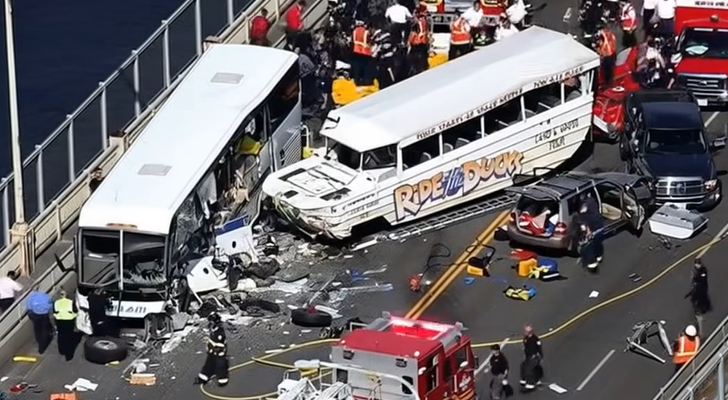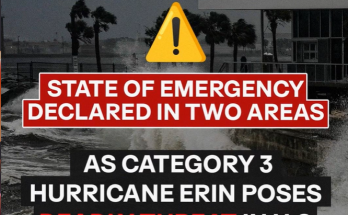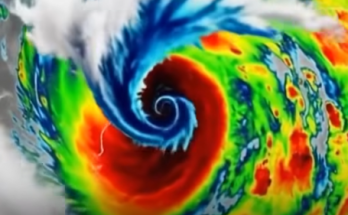In a week marked by both relief and sorrow, communities across two countries have been closely following updates on two separate but devastating accidents—one in Seattle, United States, and the other in British Columbia, Canada.
In Seattle, a collision involving a tour vehicle and a student bus left dozens injured, including a group of young Vietnamese students studying abroad. While the majority of them are now on the path to recovery, the shockwaves from the accident remain fresh.
Meanwhile, in Canada, a mudslide triggered by extreme flooding has claimed multiple lives, leaving families and communities grieving while recovery efforts continue.
Both incidents highlight not only the fragility of life but also the resilience of people and the importance of international cooperation during times of crisis.
Relief in Seattle: Vietnamese Students Begin Recovery
According to an official statement from the Vietnamese Consulate General in San Francisco, three of the four Vietnamese students injured in the Seattle bus accident have now been discharged from the hospital. Their recovery marks a small but significant step forward after days of anxiety and uncertainty.
The fourth student, Dinh Thi Nam Phuong, remains hospitalized following a major operation. Doctors confirmed that she underwent a two-hour surgery to treat a serious thigh injury. Encouragingly, her condition is now stable, and her health continues to improve each day.
Deputy Consul General Cao Vu Mai explained that consular officials are working closely with U.S. authorities to ensure Phuong’s family can travel to the United States quickly. Special arrangements are being made to expedite visa procedures so her loved ones can be by her side during this difficult time.
A Swift Response from Vietnamese Authorities
The accident, which involved 29 Vietnamese students, immediately prompted an emergency response from Vietnamese diplomats in the United States. Consular staff were dispatched to the crash site to provide assistance, translation services, and emotional support to the students and their families.
Officials also opened a dedicated hotline (+1 415-425-0228) for relatives in Vietnam and abroad to obtain updates about the students’ condition. Families have expressed gratitude for the quick intervention, which has helped ease communication barriers and provided much-needed reassurance in a time of crisis.
The consulate emphasized that supporting the injured and their families remains its top priority. Coordination with local hospitals, police, and the U.S. Department of State continues to ensure that the Vietnamese students receive the best possible care.
The Tragic Collision in Seattle
The accident occurred when a North Seattle College bus carrying international students collided with a “duck boat” tour vehicle on September 25. Duck boats, which are amphibious vehicles often used for city and water tours, have previously raised concerns about safety due to their size and limited maneuverability.
The impact was catastrophic. According to police reports, four students lost their lives, while more than 50 others sustained injuries. At least 12 individuals were critically injured, requiring immediate intensive care.
For the Vietnamese students aboard, the crash turned what should have been a routine educational outing into a traumatic and life-changing experience.
Grief and Solidarity in the Vietnamese Community
The news of the accident quickly spread to Vietnam, sparking an outpouring of support. Families, friends, and the general public have been anxiously awaiting updates, sending prayers and well-wishes across the Pacific.
In online communities, thousands have expressed solidarity, posting messages of strength for the young students and their families. Many noted how vulnerable international students can feel when far from home, highlighting the importance of cultural and diplomatic ties in moments of tragedy.
The Vietnamese government has pledged ongoing support, not only for the injured students but also for the families of those who lost their lives.
A Parallel Tragedy: Deadly Mudslide in British Columbia
While Seattle dealt with the aftermath of a traffic disaster, another tragedy unfolded in British Columbia, Canada, where catastrophic flooding triggered mudslides along Highway 99, also known as the Duffey Lake Road.
The mudslide claimed the lives of at least four individuals, with recovery efforts extending throughout the week. The Royal Canadian Mounted Police (RCMP) confirmed that the bodies of three men were recovered following intensive search operations. The body of a woman was found earlier in the week, becoming the first confirmed fatality from the event.
One man remains missing, though search efforts have been hampered by dangerous conditions, including unstable terrain and ongoing adverse weather.
Communities in Mourning
B.C. Chief Coroner Lisa Lapointe released a statement expressing condolences to the families affected:
“I extend my heartfelt condolences to the families who are now grieving the sudden and unexpected death of their loved ones, and to the family of the missing person we have so far been unable to locate. This has been an incredibly difficult year for all of us in B.C., and my heart goes out to the many families and communities who have suffered tragic losses.”
Her words reflect the broader grief felt across the province, which has been battered by a series of natural disasters this year.
The RCMP confirmed that efforts to identify the deceased and notify their families are underway. For the loved ones awaiting confirmation, the painful uncertainty adds an additional layer of anguish to an already devastating situation.
The Human Toll of Natural Disasters
The mudslide was one of many that struck southern British Columbia after record rainfall drenched the region. Floodwaters destroyed homes, washed away infrastructure, and left thousands stranded.
For many communities, the flooding has been described as “once in a century” in scale. Entire neighborhoods remain cut off, supply chains disrupted, and families displaced. Emergency shelters have been set up to accommodate those forced to flee their homes.
Highway 99, where the mudslide occurred, remains closed to motorists, with no clear timeline for reopening. The closure further underscores the devastating impact on mobility and trade in the region.
Shared Themes: Fragility, Resilience, and Support
While the Seattle accident and the British Columbia mudslide are two separate tragedies, they share common themes. Both remind us of the fragility of life and the suddenness with which disaster can strike. Both have left families grieving and communities struggling to make sense of the loss.
Yet both also highlight resilience and compassion:
-
In Seattle, strangers, doctors, and consular officials rallied around young international students, ensuring they were not left alone in a foreign country during their darkest hour.
-
In British Columbia, rescue workers, police, and community members braved treacherous conditions to recover victims and support survivors.
These examples of humanity in action show that even in moments of profound grief, solidarity and kindness can provide light.
Looking Ahead: Healing and Lessons Learned
For the Vietnamese students in Seattle, the journey is far from over. Physical healing will take time, and the psychological impact of the accident may last even longer. Counseling and community support will be crucial to help them rebuild their sense of security.
For authorities in both the U.S. and Vietnam, the incident underscores the importance of student safety programs and international cooperation in emergencies. Schools hosting international students are being encouraged to review their safety procedures and provide better orientation for navigating risks abroad.
In British Columbia, the mudslide disaster has renewed conversations about climate resilience. Scientists warn that extreme weather events, like the rainfall that triggered the floods, are becoming more frequent due to climate change. Policymakers face increasing pressure to invest in infrastructure that can withstand future disasters.
Conclusion: A Week of Mixed Emotions
The past week has brought a whirlwind of emotions for people in North America and beyond. Relief at the recovery of Vietnamese students in Seattle is tempered by the grief of families who lost loved ones. In British Columbia, the tragedy of lives lost to a mudslide has left communities mourning, even as they begin the long process of recovery.
What unites both stories is a universal truth: in times of tragedy, human compassion rises to the forefront. Whether through diplomatic support, medical care, or community solidarity, people have shown that no one has to face disaster alone.
As these communities heal, the memory of those lost will remain a reminder of both life’s fragility and the strength that comes from standing together.



